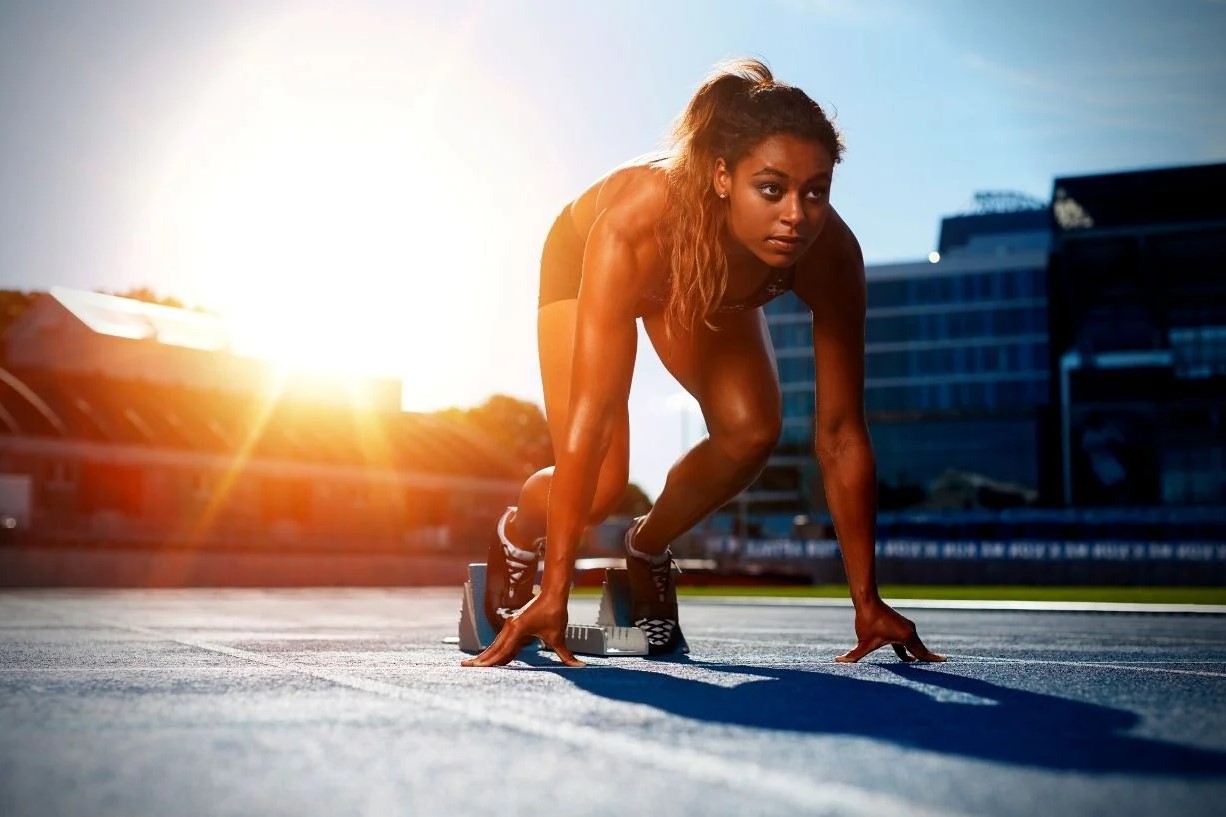
Athleticism isn't just about running fast or lifting heavy weights. It's a blend of strength, agility, endurance, and skill. Ever wondered what makes an athlete tick? From the ancient Olympics to modern-day sports, the journey of athleticism is filled with fascinating facts. Did you know that the first recorded Olympic Games took place in 776 BC? Or that the human body has over 600 muscles working together during physical activity? Whether you're a sports enthusiast or just curious, these 28 facts will give you a deeper appreciation for the world of athletics. Buckle up, because you're about to learn some amazing things about what it takes to be an athlete!
Key Takeaways:
- Athleticism has a fascinating history, from ancient Olympic Games to modern record-breaking feats. It's a journey of human potential and resilience, showcasing the incredible capabilities of the human body.
- Nutrition, mental toughness, and the science behind athletic performance are crucial for athletes to excel. From carbohydrates to visualization techniques, these factors play a vital role in achieving peak athletic performance.
The Origins of Athleticism
Athleticism has a rich history that spans centuries. From ancient civilizations to modern sports, the journey of athletic prowess is fascinating.
-
The first Olympic Games were held in 776 BC in Olympia, Greece. Athletes competed in events like running, long jump, and discus throw.
-
Ancient Egyptians played a game similar to modern-day bowling. Archaeologists discovered a child's grave containing a set of stone balls and a lane.
-
The Mayans played a ball game called Pok-A-Tok. Players used their hips to hit a rubber ball through stone hoops.
-
In medieval England, a sport called "mob football" was popular. Entire villages would compete, and the game had very few rules.
Evolution of Modern Sports
Modern sports have evolved significantly, incorporating new rules, equipment, and training methods. This evolution has shaped the athletic world we know today.
-
Basketball was invented by Dr. James Naismith in 1891. He used a soccer ball and peach baskets as goals.
-
The first modern Olympic Games were held in Athens, Greece, in 1896. Thirteen countries participated, with 280 athletes competing in 43 events.
-
Rugby and American football share a common origin. Both sports evolved from a game played at English public schools in the 19th century.
-
The marathon was inspired by the ancient Greek soldier Pheidippides. He ran from the battlefield of Marathon to Athens to announce victory over the Persians.
Record-Breaking Feats
Athletes constantly push the boundaries of human potential. These record-breaking feats showcase the incredible capabilities of the human body.
-
Usain Bolt holds the world record for the 100 meters sprint. He completed the race in 9.58 seconds in 2009.
-
Michael Phelps is the most decorated Olympian of all time. He has won 23 gold medals, three silver, and two bronze.
-
The longest tennis match in history lasted 11 hours and 5 minutes. John Isner defeated Nicolas Mahut at Wimbledon in 2010.
-
Eliud Kipchoge became the first person to run a marathon in under two hours. He completed the race in 1:59:40 in 2019.
Unusual Sports Around the World
Not all sports are mainstream. Some unique and unusual sports have gained popularity in different parts of the world.
-
Cheese rolling is an annual event in Gloucestershire, England. Participants chase a wheel of cheese down a steep hill.
-
Sepak Takraw is a popular sport in Southeast Asia. It combines elements of soccer and volleyball, with players using their feet, knees, chest, and head to hit a rattan ball.
-
Bossaball is a sport that combines volleyball, soccer, gymnastics, and capoeira. It is played on an inflatable court with a trampoline on each side.
-
Buzkashi is the national sport of Afghanistan. Players on horseback try to place a goat carcass in a goal.
The Science Behind Athletic Performance
Understanding the science behind athletic performance can help athletes optimize their training and achieve peak performance.
-
VO2 max is a measure of an athlete's aerobic capacity. It indicates the maximum amount of oxygen the body can utilize during intense exercise.
-
Fast-twitch muscle fibers are responsible for explosive movements. Sprinters and weightlifters typically have a higher proportion of these fibers.
-
Slow-twitch muscle fibers are more efficient at using oxygen. Endurance athletes, like marathon runners, have a higher proportion of these fibers.
-
The lactate threshold is the point at which lactic acid builds up in the muscles. Training to increase this threshold can improve endurance performance.
The Role of Nutrition in Athleticism
Proper nutrition is crucial for athletes to perform at their best. It provides the necessary fuel and nutrients for training and recovery.
-
Carbohydrates are the primary energy source for athletes. They are stored as glycogen in the muscles and liver.
-
Protein is essential for muscle repair and growth. Athletes need more protein than the average person to support their training.
-
Hydration is critical for maintaining performance. Even mild dehydration can impair physical and cognitive function.
-
Omega-3 fatty acids have anti-inflammatory properties. They can help reduce muscle soreness and improve recovery.
Mental Toughness in Sports
Mental toughness is as important as physical strength in sports. Athletes must develop resilience, focus, and a positive mindset to succeed.
-
Visualization is a technique used by many athletes. It involves mentally rehearsing a performance to improve focus and confidence.
-
Goal setting helps athletes stay motivated. Setting specific, measurable, achievable, relevant, and time-bound (SMART) goals can enhance performance.
-
Mindfulness can improve an athlete's focus and reduce stress. Practices like meditation and deep breathing can enhance mental clarity.
-
Grit is the ability to persevere through challenges. It is a key trait of successful athletes, enabling them to push through adversity and achieve their goals.
The Final Sprint
Athleticism isn't just about physical prowess; it's a blend of dedication, strategy, and heart. From the ancient Olympic Games to today's high-tech training methods, athletes have always pushed the boundaries of human potential. Whether you're a weekend warrior or an aspiring pro, understanding these facts can inspire and inform your journey. Remember, every champion started somewhere, often with small steps and big dreams. Keep pushing your limits, stay curious, and never underestimate the power of perseverance. Athleticism is as much about the mind as the body. So, lace up those sneakers, hit the track, and embrace the challenge. The road to greatness is paved with sweat, determination, and a relentless pursuit of excellence. Keep striving, and who knows? You might just make history yourself.
Frequently Asked Questions
Was this page helpful?
Our commitment to delivering trustworthy and engaging content is at the heart of what we do. Each fact on our site is contributed by real users like you, bringing a wealth of diverse insights and information. To ensure the highest standards of accuracy and reliability, our dedicated editors meticulously review each submission. This process guarantees that the facts we share are not only fascinating but also credible. Trust in our commitment to quality and authenticity as you explore and learn with us.


